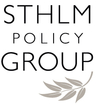Mid-term review of RWI’s Regional Asia Programme on Human Rights and Sustainable Development 2017-2021 Oct 18
Sthlm Policy Group · Comments: 22This mid-term review report of Raoul Wallenberg Institute's (RWI) Regional Asia Programme on Human Rights and Sustainable Development focused on assessing the relevance, effectiveness and efficiency of the Programme. It aimed to identify factors that have influenced results achievement positively, but also factors that have contributed to non-performance issues. The review proposed changes to the programme strategies, design, result framework and management. The review process assessed activities aiming to strengthening knowledge among key actors in the Asia Pacific region on connections between human rights, gender equality and environment in the region. It included assessing regional research Initiatives on human rights and environment, climate change and gender; regional thematic study on climate change and migration (covering ten countries); regional thematic study on human rights protection at the local level (in seven cities), linked to sustainability agendas and within the frame of human rights cities concept; thematic study on the right to safe, clean and sustainable environment human rights and environment in ASEAN countries. In addition, the review also assessed activities aiming to strengthening multi-sector synergies, collaboration and rights-based action towards Agenda 2030 targets. The review also assessed activities aiming to promoting accountability, including cross-border violations and actions of private actors, and adequate measures for marginalised and discriminated groups.
The overall objective of the Raoul Wallenberg Institute of Human Rights and Humanitarian Law (RWI) Regional Asia Programme on Human Rights and Sustainable Development 2017-2021 is to contribute to a just, inclusive and sustainable development in the region through mutually reinforcing protection of human rights, gender equality and the environment.

Comments: 22